From the Desk of Jack Kennedy III
Happy New Year!
It is hard to believe we are turning the page on 2021 and about to embark on life's next chapter. In this month's newsletter, we are including a topic that is not only seasonal but important to your yearly planning – financial resolutions. If you’re having some difficulty with your personal New Year’s resolution, I recommend you take some advice from legendary Coach Jimmy Valvano.
Three Things We Should Do Every Day
- Laugh
Laughter is indeed the best medicine. You should make every effort to laugh each and every day. - Think
You should spend time in thought. Life is a nonstop series of challenges and problems. And the problem is not solved when it’s ignored; it is solved when it’s analyzed. - Cry
Have your emotions moved to tears. Tears defend against stress – and also against bacteria. They also keep our vision clear.
"If you laugh, if you think and if you cry, that's a heck of day. You do that seven days a week, you are going to have something special." – Coach Jimmy V.
This is wisdom from a man who knew his life was coming to an unfortunate end. I encourage you to please promise me this – your New Year's resolution is to not wait until your days are numbered to wish you did more, loved more and gave more. Let's make every second count in 2022 and enjoy every second of life's precious breath!
Best Regards,
Jack

Financial Resolutions for 2022
Start the new year right by reviewing and revamping your financial plan.
Instead of hauling out those familiar New Year’s resolutions about keeping a journal or drinking more water, how about focusing on your financial well-being? Here’s a set of resolutions that can help ensure your long-term financial confidence.
Update your beneficiaries
If you don’t correctly document your beneficiary designations, who gets what may be determined by federal or state law, or by the default plan document used in your retirement accounts. When did you last update your designations? Have life changes (divorce, remarriage, births, deaths, state of residence) occurred since then?
Update your beneficiary listings on wills, life insurance, annuities, IRAs, 401(k)s, qualified plans and anything else that’d affect your heirs. If you’ve named a trust, have any relevant tax laws changed? Have you provided for the possibility that your primary beneficiary may die before you? Does your plan address the simultaneous death of you and your spouse? An estate attorney can help walk you through these various scenarios.
Create flexible liquidity
Cash has inflation and opportunity tradeoffs, but a lack of access can cause greater problems if you find yourself needing to draw from your investments. Finding a balance in line with your life and goals is important to avoid disrupting your long-term plans.
The right liquidity strategy will be different for every investor and could incorporate cash reserves, cash alternatives, highly liquid securities, lines of credit, margin loans or even structured lending. Multiple institutions and account owners can be used to hold more than $250,000 with FDIC guarantees.
Evaluate your retirement progress
What changes are needed given your current lifestyle and the market environment? Don’t fixate solely on your assets’ value – instead, drill down into what types of securities you hold, your expected cash flows, your contingency plans, your assumed rate of return, inflation rates and how long you’re planning for. Retirement plans have many moving parts that must be monitored on an ongoing basis.
Review your account titling
Haphazard account titling can create problems down the line. If one partner dies and an account is titled only in their name, those assets can’t be readily accessed by the survivor. The solution may be creating joint accounts, but it’s not always that simple. Titling has implications across a range of estate planning issues, as well as other situations such as Medicaid eligibility and borrowing power, too.
Develop a charitable strategy
Giving comes from the heart, but you can also do well when doing good. For example, consider whether or not it’d make sense to donate low-basis stocks in lieu of cash, or learn about establishing a donor advised fund to take an upfront deduction for contributions made over the next several years. Give, but do so with an eye toward reducing your tax liability.
Spark a family conversation
Sustaining the benefits of wealth for generations is nearly impossible without a mutual understanding among family members. Consider creating a family mission statement that outlines the shared vision for your wealth and legacy. This should include nonfinancial topics, too, like your values, expectations and important life lessons.
Digitize your record keeping
You likely receive emails, letters reports and updates from multiple accounts. Consider going paperless and centralizing important files in one place to reduce frustration and ensure easy access when needed. Your advisor may have access to secure storage tools that can help.
Invest with your values
Your portfolio should reflect what matters to you – and that can mean anything from avoiding particular industries to actively pursuing an ESG (environmental, social and governance) investing approach. So whether you want to promote the transition to clean energy, advocate for diversity and inclusion in the workplace, or support companies with strong data privacy practices, your portfolio can be tailored to reflect those priorities.
Check in with your advisor
Your advisor can offer specialized tools, impartiality and experience earned by dealing with many market cycles and client situations. Communicate openly about what’s happening in your life today and what may happen in the future. It’s difficult to manage what they aren’t aware of, so err on the side of over-communicating and establish a regular check-in schedule for the year ahead.
These suggestions are a helpful starting point, but no two long-term plans are identical – so reach out to your advisor for more specific guidance about progressing toward your goals in 2022.
All expressions of opinion reflect the judgment of Raymond James & Associates, Inc. and are subject to change. There is no assurance any of the trends mentioned will continue or that any of the forecasts mentioned will occur. Economic and market conditions are subject to change. Investing involves risk including the possible loss of capital. The S&P 500 is an unmanaged index of 500 widely held stocks. It is not possible to invest directly in an index. The market performance noted does not include fees and charges which would affect an investor’s returns. Past performance may not be indicative of future results.
Investment products are: not deposits, not FDIC/NCUA insured, not insured by any government agency, not bank guaranteed, subject to risk and may lose value. Raymond James financial advisors do not render legal or tax advice. Please consult a qualified professional regarding legal or tax advice.


 Maggie Slivinski
Maggie Slivinski Steve Corbo
Steve Corbo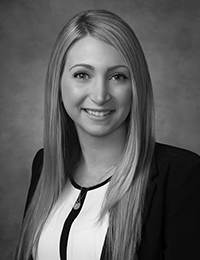 Alexandra Rao
Alexandra Rao Alexa Comey
Alexa Comey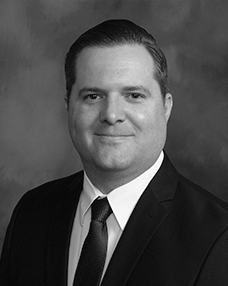 Gene Donato
Gene Donato Jack W. Kennedy III, CFP®, AAMS®
Jack W. Kennedy III, CFP®, AAMS® Henry (Hank) J. Schroeder, CFP®
Henry (Hank) J. Schroeder, CFP®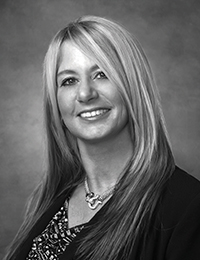 Diane Gallagher
Diane Gallagher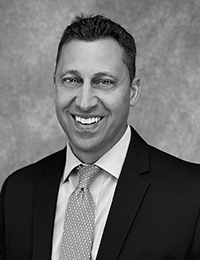 Scott Bernstiel
Scott Bernstiel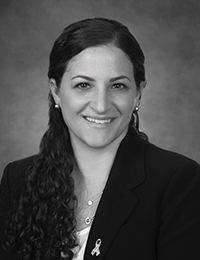 Chrissy Carpenter
Chrissy Carpenter David Strout
David Strout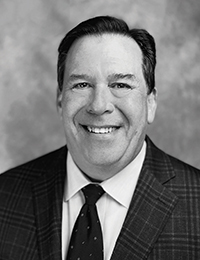 Keith R. Hering AAMS®, CRPS®, CIMA®
Keith R. Hering AAMS®, CRPS®, CIMA®  Marjorie Onuwa
Marjorie Onuwa